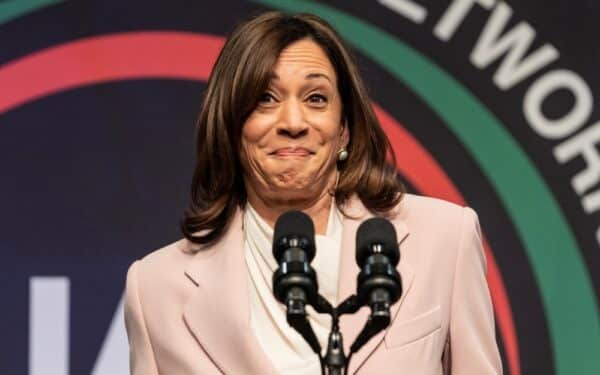Anyone with the right qualifications can call themselves a firm of accountants. There are millions of them across the world, but there are only four that count. In no other field of business, even including the vast US banks, is there such a concentration of market power as in the not-so-fab four, Deloitte, KPMG, EY and PwC. The first two have been hit with $80m fines, EY failed to see the looming disaster at Wirecard, and PwC is resisting accusations of failing to spot fraud at a racing car company.
This is market failure on a grand scale; worse still, if one of them makes a monumental mistake, the only practical response is to bring in one of the other three to do the post-mortem. When construction group Carillion failed in 2018, both KPMG and Deloitte were conflicted, further reducing the choice. To rub salt into the wound, fees for dealing with the failure amounted to £72m (with £17m going to PwC) and KPMG has this week been accused of providing “false and misleading information” to its regulator, the Financial Reporting Council.
How on earth did we get here? There used to be a big five, until Arthur Andersen was brought down in the wake of the Enron scandal. Even five looked too few, but the last merger, to create PwC in 1998, somehow failed to attract the regulators’ attention despite heavy criticism in the financial press. Today they have over a million employees between them, and it is practically impossible for one of the four to be allowed to fail. EY is the leading candidate: it faces a £1bn legal claim after the collapse of NMC Health and Finablr in the UK as well as Wirecard in Germany.
The competition authorities are, belatedly, trying to do something about what is effectively a cartel. The FRC has introduced guidelines to beef up audit and discourage its use as a gateway to lucrative consultancy contracts. The result may be better audits (we’ll see) but the immediate impact is a dramatic rise in audit costs, plus a reluctance among the big four to take on difficult clients. Actually forcing a real break-up seems as far away as ever.
Besides, a whole new industry is opening up for the big four. Mere numbers are no longer enough today. Public companies must show they are good corporate citizens, so here comes Environmental, Social and Governance reporting. and who better to ask than the accountants? Companies can wave their ESG certificates alongside their clean (if incomprehensible) audit reports, to counter protests from “stakeholders” who may have no financial interest in the business.
Meanwhile, the ESG bandwagon has sprung a nasty puncture. It is a “dangerous placebo that harms the public interest”, thinks Tariq Fancy. He could be safely ignored but for the inconvenient truth that he was in charge of sustainable investment at Blackrock, the world’s largest investor, whose boss is frightfully keen on green. He describes ESG investing as “a fairytale.”
Even before it gets going, ESG is riddled with problems over definition. Your ESG fund may eschew tobacco and armaments, but does that prohibition extend to the companies making aircraft landing gear for planes, or tyres for the wheels?
Chipmaker Nvidia scores highly on the ESG scale, but its customers include bitcoin miners, who between them consume as much electricity as Denmark in their search for the next coin, an essentially valueless waste of energy.
Still, never fear. The answers to all these knotty problems will be found in the new departments of the big four accountants, who will package it up with a ribbon at £800 an hour.
Boys from the black stuff unite
The North Sea oil producers could have picked a better moment to launch their fightback against the forces of extinction than just ahead of next month’s greenfeast at the COP26 conference on their doorstep. Still, they have to get their message across at some point or we’ll be once again dependent on those cuddly people from Russia and Saudi Arabia.
The political problem facing the UK government here is acute. So far, it has resisted pressure to stop a coal mine in Cumbria or to rescind development permission for the Cambo oilfield offshore Scotland, or to try and lean on Britain’s dwindling oil exploration sector to dwindle faster. All three provide ammunition for those who believe that salvation lies with stopping the UK’s output of fossil fuels. It’s a worthy aim, since we’d all prefer to save the planet, but even if the protesters force a government climbdown, it will make no difference to the outcome except to make Britain poorer.
The Cumbrian coal will be used to make steel, not to be burnt in a power station; the Cambo field is only going to slow the fall in North Sea output; and stopping it altogether would not affect what we burn. This is surely the point. Instead of keeping jobs in the domestic exploration and production industry, the value of the output would go elsewhere, effectively providing a boost to the regimes in Russia and Saudi Arabia either in higher prices or in the opportunity to raise their output.
This should not need to be spelled out, but the protesters can point to the UK’s climate change legislation, which demands carbon neutrality by 2050. No realistic projection has ever shown how this can be done, while the Committee on Climate Change, the unelected body which is calling the shots here, has resisted attempts to publish its workings behind its bland assertion that it is all possible at a cost we’d hardly notice.
Still, our dear prime minister will want something to grab the headlines and get him round the COP corner, so here’s an idea: propose the devolution of Scottish oil to the Scottish government. That should put the environmental cat among the coalition pigeons of the SNP and its new chums the greens.





